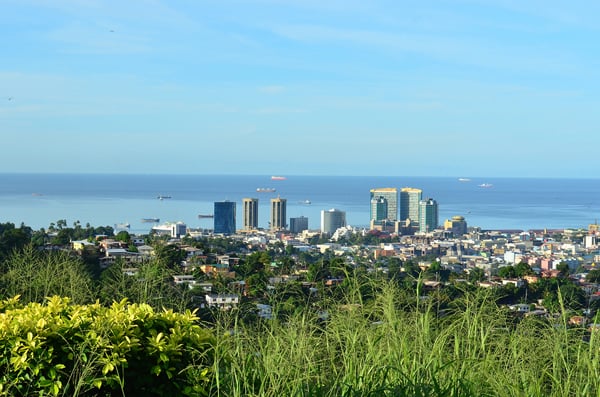Public Transportation in Port of Spain
Summary: Mastering the public transportation system in Port of Spain is a crucial aspect of adapting to life there. This article provides a detailed overview of the available local transit options.

Port of Spain, the capital city of Trinidad and Tobago, offers a variety of public transportation options for both locals and expats. The city's public transportation system includes the Public Transport Service Corporation (PTSC) buses, maxi taxis, route taxis, and ferries. The PTSC is the main public transportation provider, operating a fleet of buses that service routes throughout the city and the wider country. Maxi taxis and route taxis are privately owned and offer more flexible routes and schedules. The ferry service operates between Port of Spain and Scarborough, Tobago. With these options, it is possible for an expat living in Port of Spain to comfortably live without a car, relying on the public transportation system and walking. However, the convenience and comfort of each mode of transportation can vary.
Public Transport Service Corporation (PTSC) Buses
The PTSC operates a fleet of buses that service routes throughout Port of Spain and the wider country. The buses are generally safe and reliable, operating from early morning until late evening. However, during peak hours, buses can be crowded and delays are common. The fare for a single journey is TT$4.00 for adults and TT$2.00 for children and senior citizens. Monthly passes are also available at a cost of TT$240.00 for adults and TT$120.00 for children and senior citizens. While the buses are generally safe, it is always advisable to be cautious, especially when travelling alone or at night.
Maxi Taxis
Maxi taxis are privately owned minibuses that operate on fixed routes throughout the city. They are a popular choice for commuters due to their flexibility and frequency. The fare varies depending on the distance travelled, but it is generally affordable. Maxi taxis are considered safe, but like any form of public transportation, it is advisable to be cautious, especially when travelling alone or at night. Maxi taxis operate from early morning until late evening, with some services running 24 hours.
Route Taxis
Route taxis, also known as 'H cars', are private cars that operate on fixed routes. They are a convenient option for short journeys within the city. The fare is usually slightly higher than that of maxi taxis, but they offer a more comfortable and private ride. Route taxis are generally safe, but it is always advisable to use licensed taxis and to be cautious, especially when travelling alone or at night.
Ferry Service
The ferry service operates between Port of Spain and Scarborough, Tobago. The journey takes approximately 2.5 hours and offers a scenic and relaxing alternative to flying. The ferries are modern and comfortable, with amenities such as air conditioning, cafeterias, and lounges. The fare for a one-way trip is TT$50.00 for adults and TT$25.00 for children. The ferry service is considered safe and is a popular choice for both locals and tourists.
In conclusion, the public transportation system in Port of Spain, Trinidad and Tobago is diverse and generally reliable. While it is possible to live comfortably without a car, the convenience and comfort of each mode of transportation can vary. As with any city, it is always advisable to be cautious when using public transportation, especially when travelling alone or at night.
About the Author
 Joshua Wood, LPC joined Expat Exchange in 2000 and serves as one of its Co-Presidents. He is also one of the Founders of Digital Nomad Exchange. Prior to Expat Exchange, Joshua worked for NBC Cable (MSNBC and CNBC
Primetime). Joshua has a BA from Syracuse and a Master's in Clinical and Counseling Psychology from Fairleigh Dickinson University. Mr. Wood is also a licensed counselor and psychotherapist.
Joshua Wood, LPC joined Expat Exchange in 2000 and serves as one of its Co-Presidents. He is also one of the Founders of Digital Nomad Exchange. Prior to Expat Exchange, Joshua worked for NBC Cable (MSNBC and CNBC
Primetime). Joshua has a BA from Syracuse and a Master's in Clinical and Counseling Psychology from Fairleigh Dickinson University. Mr. Wood is also a licensed counselor and psychotherapist.
Some of Joshua's articles include Pros and Cons of Living in Portugal, 10 Best Places to Live in Ireland and Pros and Cons of Living in Uruguay. Connect with Joshua on LinkedIn.
Additional Information:
- Cost of Living in Port of Spain
- Health Care in Port of Spain
- Discovering the Best of Port of Spain
- Healthcare & Health Insurance in Trinidad & Tobago
- Best Places to Live in Trinidad & Tobago
- Real Estate in Trinidad & Tobago
- Pros & Cons of Living in Trinidad & Tobago
- Getting a Driver's License in Trinidad & Tobago
- Pros and Cons of Living in Trinidad & Tobago 2025




